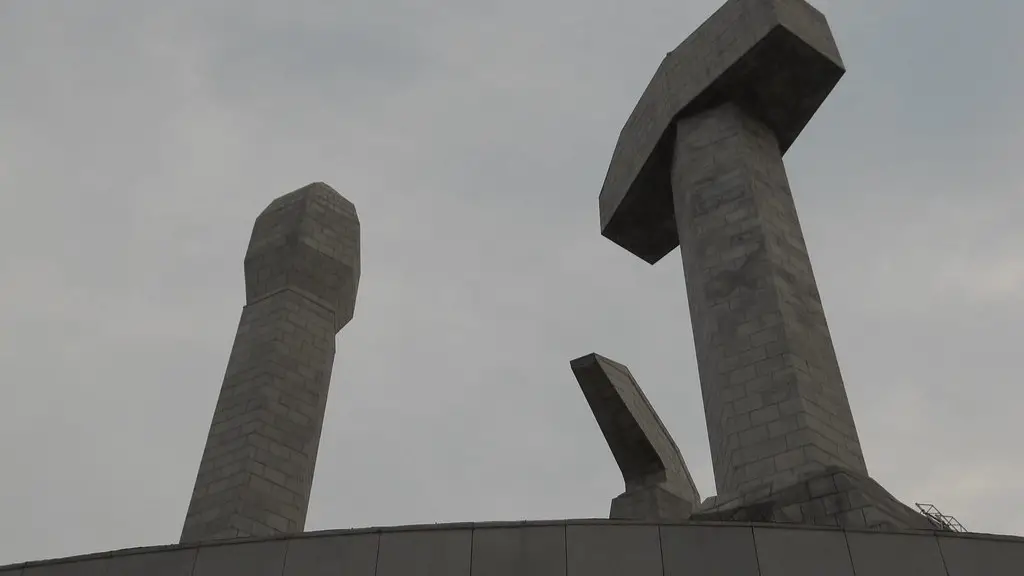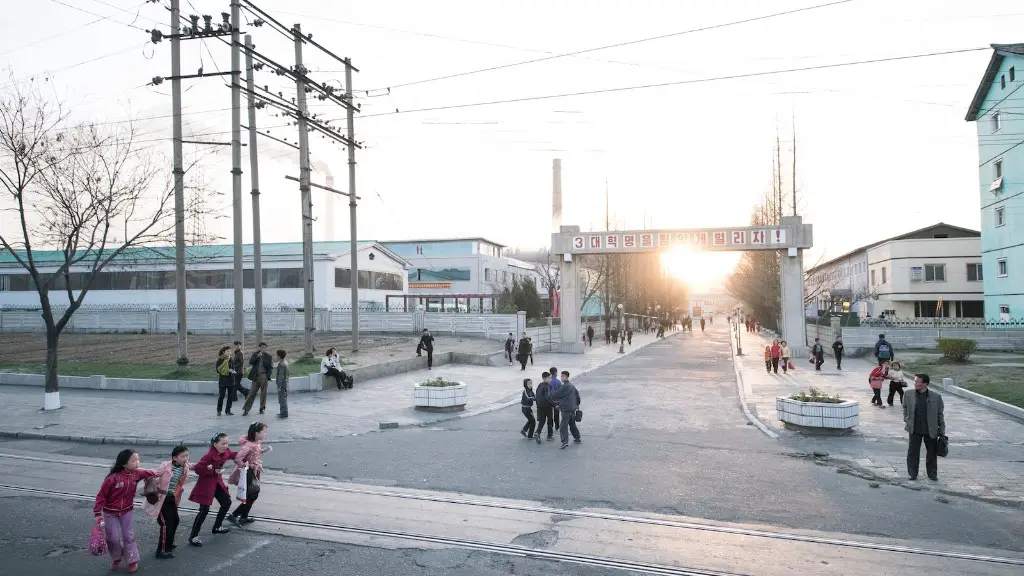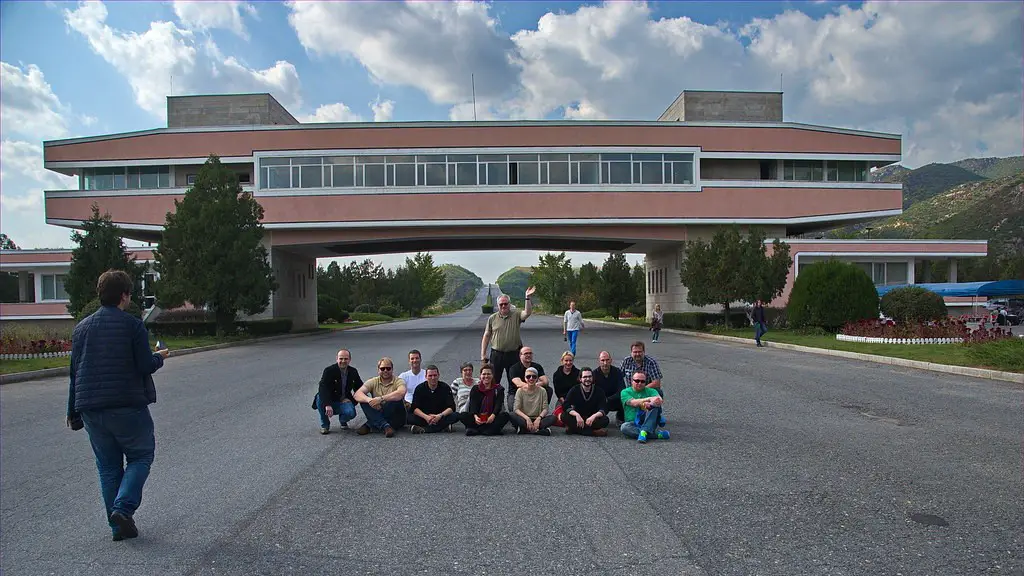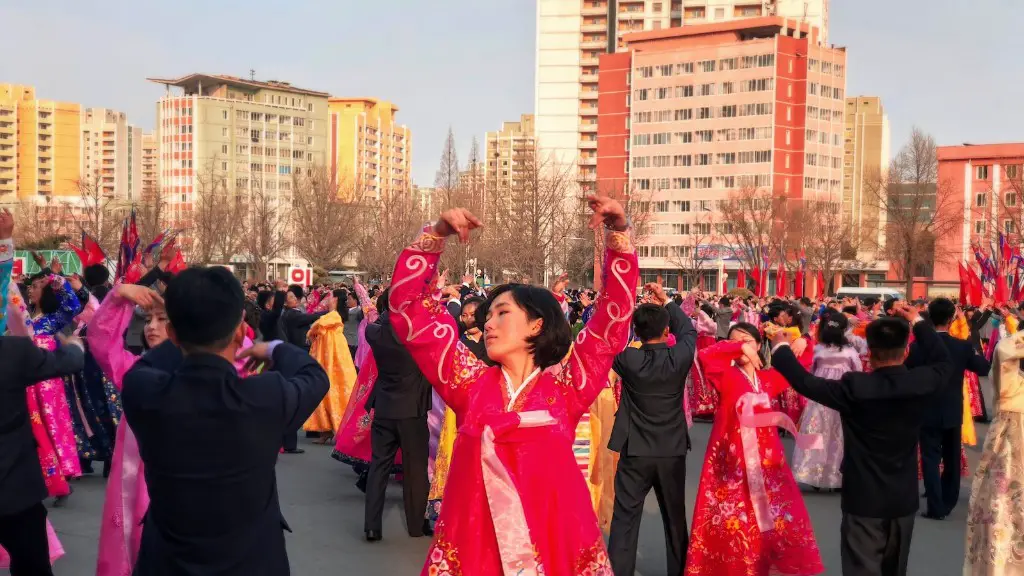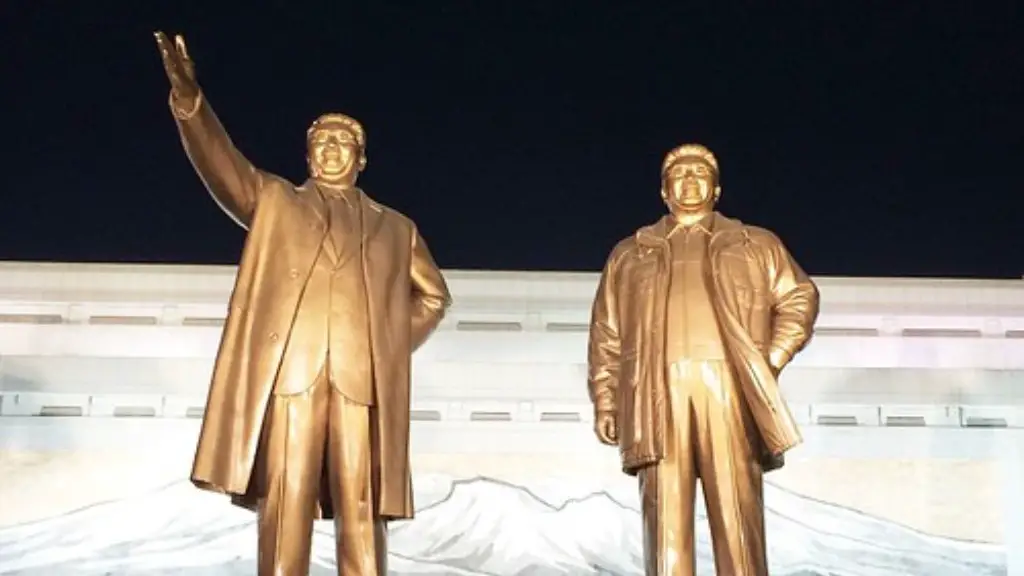North Korea has long been praised – and also faced criticism – for its vast and stringent control over its citizens. The nation’s undemocratic, authoritarian rule has been subject to much debate on the international stage. Questions arise as to whether the nation has any access to true democratic control and whether there is any form of consent of the governed in the country. To understand this further, it’s important to look at the country’s history, government, and people.
Political System
North Korea is an authoritarian state with rule by a single party, the Korean Workers’ Party (KWP). It is a totalitarian government, with Kim Jong-un as its supreme leader, who is ultimately in control of all policymaking and decision-making. The KWP exercises supreme authority over all aspects of society, and the military and civil law are closely tied together under the KWP. Every North Korean citizen is subject to the control of the KWP, and to the strict rules and regulations enforced by the state.
The government of North Korea operates under a centralized system, where all power and authority lies with the ruling elite. Elections are little more than a formality, with Kim Jong-un ruling as an absolute dictator. Indeed, the ruling elite and their families have been known to manipulate the political process in order to maintain their power and authority.
Political Opposition
The KWP has been known to crack down on political opposition and dissent, ensuring that citizens are unable to voice opinions contrary to that of the government. In most cases, dissidents are dealt with harshly by the government, and often times face imprisonment, torture, and even death. The government also tightly controls access to information, with only a few state-run media outlets that are closely monitored by officials.
The government has also imposed strict restrictions on freedom of speech, and on the ability of citizens to travel, especially to South Korea and other democratic countries. Citizens who express any level of dissent or criticism can be punished by harsh penalties, including death in some cases. This means that North Koreans are at risk of serious repercussions if they stand up to the regime in any way.
Informed Consent
With all of this in mind, it can be concluded that there is no consent of the governed in North Korea. The oppressive, totalitarian regime does not allow for any real form of democratic control, and citizens are not able to express dissenting opinions or criticism without fear of punishment. Therefore, any decisions or policies made by the regime are not informed by the citizens and are instead simply enforced upon them.
Human Rights Abuses
North Korea has long been criticized for its poor human rights record, with many rights abuses and violations of international law being reported on a regular basis. Reports of torture, execution, and other forms of inhuman treatment are commonplace in the nation, and the government typically does not respond to such accusations.
It has also been reported that the North Korean government has forcibly removed North Korean citizens from their homes in order to create new labor camps and detention facilities. In addition, citizens are denied access to basic necessities such as food, healthcare, and education. This lack of access to basic needs leads to a lack of autonomy and control that further highlights the lack of consent of the governed in North Korea.
International Response
In response to North Korea’s lack of consent of the governed, international governments, organizations, and human rights groups have long spoken out about the oppressive regime. Those in the international community have called for North Korea to make reforms in order to end its human rights abuses and to allow for free and fair elections and other forms of democratic control. Unfortunately, these calls for reform have largely fallen on deaf ears, and the North Korean government continues to rule with an iron fist.
Domestic Implications
The lack of consent of the governed in North Korea has profound implications for the country’s citizens. As citizens have no say in their nation’s policies and decision-making, their lives are often at the mercy of the government. This can lead to poverty, deprivation, and exploitation of citizens, as well as a lack of access to basic amenities.
The lack of a functioning democratic system also means that citizens have limited opportunities to voice dissent or criticize the government. This, in turn, leads to a lack of accountability and justice, as citizens are unable to hold their government accountable and this allows for human rights abuses and other violations to continue.
Economic Consequences
The lack of consent of the governed also has serious economic consequences for North Korea, as the country’s economy is largely controlled by the KWP. The KWP’s control over the economy often leads to instability and corruption, as there is no real accountability or transparency when it comes to how funds are managed. This has further implications for the nation’s already struggling economy, as funds are being siphoned off and mismanaged.
The lack of economic stability and accountability also exacerbates poverty and deprivation, as those at the top are able to benefit while the majority of citizens struggle to survive. This means that the lack of consent of the governed contributes to an unsustainable and unfair economy and further exacerbates the country’s already dire situation.
International Sanctions
In response to North Korea’s lack of consent of the governed and its human rights abuses, the international community has imposed ever-stricter sanctions on the country in a bid to pressure it into making reforms. These sanctions have had varying degrees of success, with some failing to have much effect, and others causing some level of disruption to the country’s economy and society.
However, it is important to note that these sanctions are often seen as a form of punishment for North Korea and its citizens, rather than an attempt to bring about meaningful change. As such, it is important to question whether or not these sanctions are effective in bringing about real change, or if they simply serve to punish the North Korean people.
Opinion of the People
Despite the fact that North Korea does not have any form of consent of the governed, there is little reliable information on the opinion of the North Korean people on the country’s political system. This is due to the government’s tight control over information, as well as its strict controls over access to its citizens. However, it is believed that the people of North Korea are largely discontent with the repressive regime, and many are looking for change.
It is likely that, given the chance, the people of North Korea would vote in favour of more democratic and accountable systems of governance, as they have been deprived of such options for decades. However, until this becomes a reality, the North Korean people will continue to suffer under the oppressive regime.
International Involvement
The international community has a responsibility to ensure that North Korea is held accountable for its lack of consent of the governed. Governments, organisations, and activists around the world must continue to pressure the North Korean regime to end its human rights abuses and to move towards a more democratic system of governance. Only then will the North Korean people be able to experience the freedoms that are enjoyed by other citizens of the world.
The international community must also continue to raise awareness of the situation in North Korea and the lack of consent of the governed in the country. This will ensure that the plight of the North Korean people is not forgotten and that they continue to receive the attention and support of the international community.
Future of North Korea
It is difficult to say what the future holds for North Korea and its citizens. The nation’s oppressive regime has been in place for decades, and it is unlikely that it will change in the near future. However, the international community must continue to call for change and press for reform, in order to ensure that the North Korean people someday have access to a more democratic and accountable government.
It is also important to remember that the North Korean people are resilient and have faced years of oppression and hardship. Despite these challenges, they remain hopeful and determined to create a better future for themselves and their country. With the support of the international community, it is possible that the people of North Korea will one day have the chance to experience true consent of the governed.
